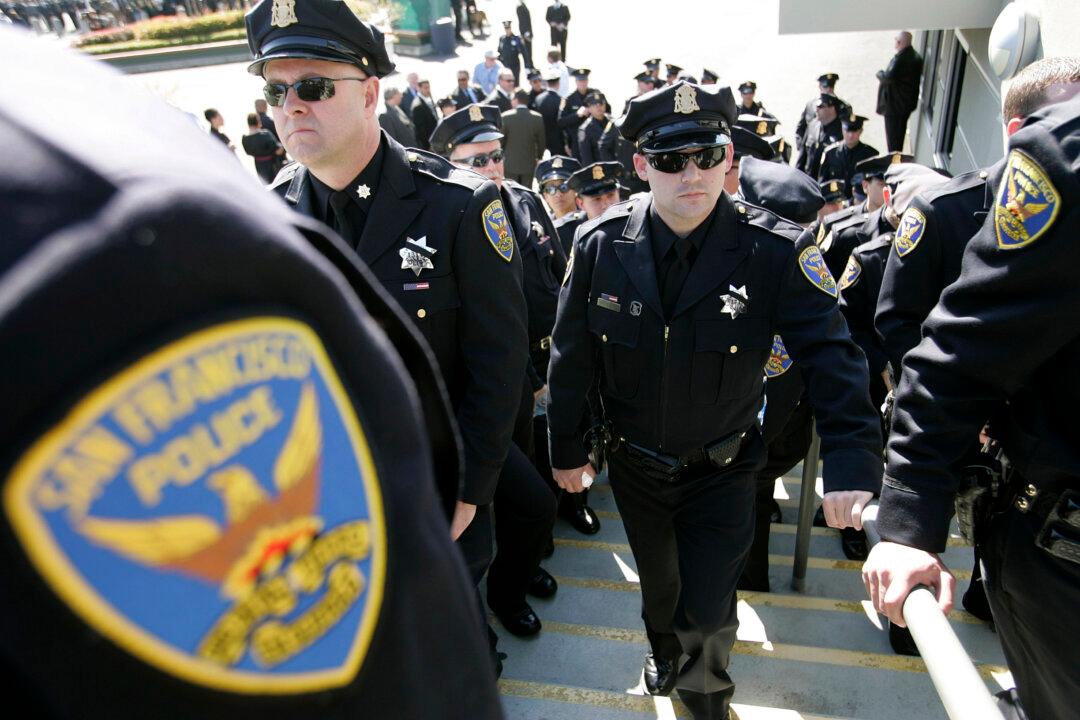A ballot measure that would allow the police department to use advanced technology and also give it more independent authority—introduced by San Francisco Mayor London Breed—is drawing support from tech investors who have made approximately $400,000 in recent donations, according to city and county ethics commission records.
Proposition E would authorize police to use drones and surveillance cameras, allow officers to pursue suspects involved in felony or violent misdemeanor crimes, and reduce paperwork needed to file reports. It would also alter the balance of power between the department and the commission tasked with overseeing it by requiring public meetings for policy changes.





